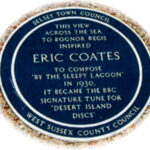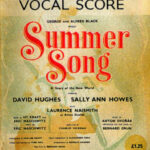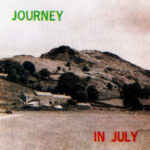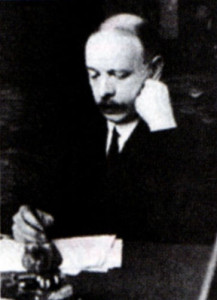The seasons have always been a fruitful source of inspiration for composers and songwriters, summer being perhaps the most popular -although there are autumn concertos and songs about winter wonderlands and something to do with spring. But now it’s summer.
Eric Coates’ Summer Days Suite was first performed in the autumn of 1919 after Coates and his wife had enjoyed a long and pleasant holiday at Southwold in Suffolk.
The composer had just been sacked – for missing too many rehearsals – from the Queen’s Hall Orchestra by its conductor, Sir Henry Wood, so the rapturous applause that greeted his new suite in that very concert hall must have been especially welcome. Queen’s Hall – close to where Broadcasting House stands now – was bombed out of existence during WWII.
Recorded on a pair of 78s in 1926, the three movements are In a Country Lane, On the Edge of the Lake and At the Dance.
In 1934 Coates returned to the theme with Summer Afternoon, which he described as an ‘idyll’. On the other side is the London Bridge March, which the BBC used during the war to introduce The Robinson Family, which later gave way to Mrs Dale.
Of similar vintage is Down in Yon Summer Vale by the GWR Swindon Staff Cleemen. They broadcast and performed widely during the 30s, but made just four records. I possess two of them and if you have the other two (R 851 and 853, both Parlophone ten inch), please let me know.
Charles Wood, the composer of Down in Yon Summer Vale, is probably best known for the anthem Hail, Gladdening Light, a favourite with church choirs.
 Very different are mood music items written and recorded for use in films, radio and TV. There has always been a demand for music of this kind and since the 30s publishers have produced records for the purpose.
Very different are mood music items written and recorded for use in films, radio and TV. There has always been a demand for music of this kind and since the 30s publishers have produced records for the purpose.
Among the first of these firms was Bosworth £r Co (based just off London’s Regent Street). The Housewives’ Choice signature was one of their records. Norman Whiteley’s Air for a Summer Evening dates from 1959. The Chappell library was established in 1942 and Summer Garden by Charles Williams was issued a little later. This charming piece has been used countless times in newsreels and television programmes.
A release by The Francis, Day £r Hunter Organisation, with a few bars of Summer Sunrise, introduces us to the work of Harry Dexter who had a big hit in 1956 with a piece of music called Concetta, which was recorded very successfully by Ron Goodwin. Dexter’s Summer Sunrise is just as delightful.
 One of our best known sun-drenched titles must surely be Victor Herbert’s Indian Summer, many recordings exist and there is an excellent one by Felix Mendelssohn and his Hawaiian Serenaders on Columbia. The Melachrino Strings version – their first recording for HMV -first appeared at the end of 1946. Many more excellent records were to follow and the maestro also recorded a lot of ‘mood music’ for professional use.
One of our best known sun-drenched titles must surely be Victor Herbert’s Indian Summer, many recordings exist and there is an excellent one by Felix Mendelssohn and his Hawaiian Serenaders on Columbia. The Melachrino Strings version – their first recording for HMV -first appeared at the end of 1946. Many more excellent records were to follow and the maestro also recorded a lot of ‘mood music’ for professional use.
The lives of musical people would, on the face of it, appear to be good material for films and shows, and there were high hopes for a musical based on the life of Anton Dvorak (in simple terms, he of the Hovis advert). Summer Song opened at London’s Princes Theatre in February, 1956; Bernard Grun took many of Dvorak’s tuneful themes – including the Hovis one – and produced a colourful musical which, while not being exactly faithful to reality, made for a pleasant evening’s entertainment. Its musical director, Alexander Faris, later wrote the music for Upstairs, Downstairs.
Summer crops up over and over again in the world of films. You can take your pick from Summer and Smoke, Summer Interlude, Summer Magic, Summer of ’42, Summer Storm and Summer with Monika to name but a few
 ONE more record will always remind me of summer. Journey in July was made in 1962 and covered a camping holiday in the Lake District near Eskdale. The LP, made from my tape recordings, charts our activities and was produced as a souvenir of this holiday; it was, of course, never sold commercially. And it doesn’t include the sequence where the tent turned over on to its roof when we were putting it up.
ONE more record will always remind me of summer. Journey in July was made in 1962 and covered a camping holiday in the Lake District near Eskdale. The LP, made from my tape recordings, charts our activities and was produced as a souvenir of this holiday; it was, of course, never sold commercially. And it doesn’t include the sequence where the tent turned over on to its roof when we were putting it up.









